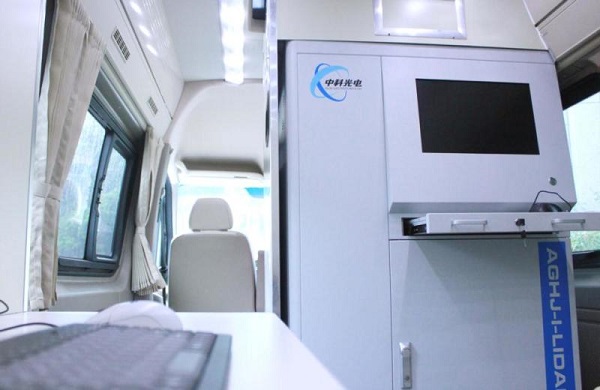CAS produces revolutionary lidar air quality monitor
Among the dozens of machines quietly collecting masses of environmental data at the Jiangsu Environmental Monitoring Center is one particularly unique operator that slowly rotates its head revealing an impressive looking lens; a particulate matter PM monitoring lidar.
A lidar is a detection system guided by the principles of radar that uses light from a laser to make measurements. This machine, produced by Wuxi CAS Photonics Co., Ltd. is fundamentally altering the way companies monitor air quality.

The PM monitoring lidar produced by Wuxi CAS Photonics Co., Ltd. can monitor the exact concentration of PM within a selected distance. [Photo/provided to chinadaily.com.cn]
CAS's product offers a greater degree of precision than any machine previously developed and through vertical scanning is capable of monitoring the exact concentration of PM within a selected distance. One notable feature of the lidar is its ability to function in moving vehicles, a trait unrivalled by any competing products.
Unsurprisingly, this innovative lidar holds over 70 percent market share and has come to be used in major urban environmental monitoring centers including Suzhou, Shenzhen and Chengdu.
CAS was founded in August 2011 and currently stands as China's foremost authority in the department of environmental lidar monitoring and is in possession of over ten national technology patents. Hu Tingting, market manager of the company, believes CAS offers a unique product that provides essential analysis that can be applied in a range of fields such as environmental protection and meteorology research.

A van owned by Hangzhou G20 Summit committee which carries the PM monitoring lidar. [Photo/provided to chinadaily.com.cn]
CAS has several products, including the PM monitoring lidar, listed as model cases of IoT excellence. In September, the company was filled with pride as its product was used at the G20 Summit in Hangzhou, a public recognition of its many achievements.
The next step for CAS, according to Hu, is an investment into researching photochemical pollution, which is of increasing scientific concern given the importance of protecting global ozone layers.

 Play
Play